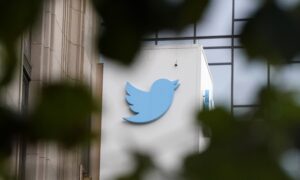
Government organizations and publicly owned services will not be required to make payments to access Twitter’s Application Programming Interface (API), the social media network said in a recent announcement.
Twitter’s API access will allow public service firms to send automated alerts. “One of the most important use cases for the Twitter API has always been public utility. Verified gov or publicly owned services who tweet weather alerts, transport updates, and emergency notifications may use the API, for these critical purposes, for free,” the Twitter development team said in a May 3 post.
API enables two applications to interact with each other without any user intervention.
This is a change in policy for Twitter, which on Feb. 2 announced that the platform will no longer support free access to the Twitter API. In March, Twitter announced the launching of new Twitter API access tiers. Though the platform retained free access to the API for developers through a “free” tier, it was severely restricted.
For better access, Twitter began charging $100 per month for the “Basic” tier, which is mostly geared towards hobbyists. The company also has an “Enterprise” tier targeted at business and commercial projects.
Following the API charges, multiple public transit and safety agencies announced that they would stop posting alerts on Twitter.
“Twitter is now limiting automated tweets and as a result this account can no longer auto post warnings as we have done so in the past. We will continue to provide general updates, but always ensure that you have multiple means for receiving weather information & alerts,” the National Weather Service (NWS) in Wilmington, Ohio, said in an April 15 Twitter post.
The Metropolitan Transportation Authority (MTA) also announced stopping its service alerts in an April 28 post.
Boosting Revenues
Charging for API access is the latest in a series of steps the social media platform has taken to boost monetization efforts.
In February, the company launched its “Twitter Blue” feature, which gave subscribers additional perks like editing tweets, viewing half the ads as normal users, and the ability to post longer tweets, among others. Twitter Blue charges $8 for subscriptions via a web browser and $11 per month for mobile phone subscriptions (or $114.99 per year), with prices varying depending on the market.
In an April 13 Twitter post, Twitter CEO Musk announced that Twitter users would be allowed to monetize content, including long-form text and hours-long videos, charging a subscription fee from followers.
For the first 12 months after joining, content creators will receive all the money they make from the posts. After 12 months, Twitter will start charging 10 percent as subscription fees.
Revamping Twitter Financials
After taking over Twitter in late October 2022 for $44 billion, Musk has been trying to get the company to profitability. At that time, Twitter was headed to a negative cash flow of $3 billion a year. In November 2022, Musk stated that the company was losing over $4 million on a daily basis.
The billionaire implemented a series of cost-cutting measures, including laying off a large number of employees and auctioning off items from the company headquarters. In a Twitter post on Feb. 5, Musk said that though the company was facing challenges, it is “now trending to breakeven.”
At a Morgan Stanley investor conference in March, Musk revealed that Twitter had cut down its non-debt expenditures to $1.5 billion in 2023 from the projected $4.5 billion. The cost reduction was aided by the shutdown of a data center and reducing the firm’s cloud services bill by 40 percent.
The platform had 253 million active daily users that Twitter deemed were “monetizable” during the fourth quarter.
















































